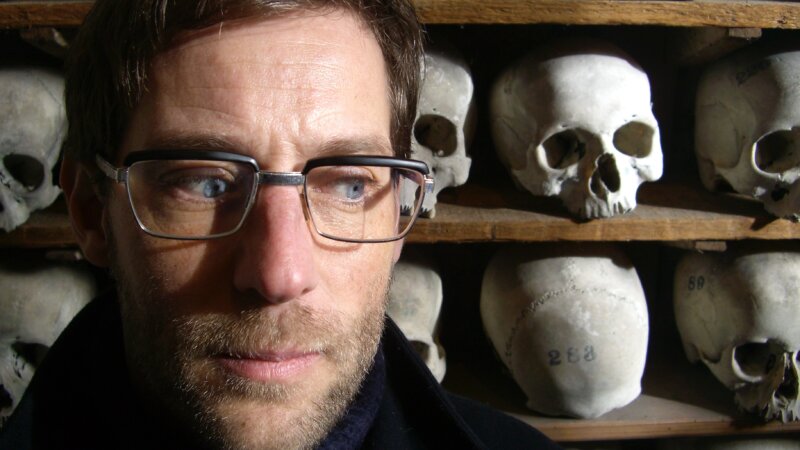Minimalism: Beyond the narrative
I am standing surrounded by bodies flailing in a field, the beat progressing ever forward at a steady tempo but creating the illusion of standing still. As the rhythms continue, their evolution barely perceptible, I remember a quote from John Cage - 'In Zen they say if something is boring after two minutes, try it for four. If still boring, try it for eight, sixteen, thirty two and so on. Eventually one discovers that it is not boring at all but very interesting.'
Dance music, especially techno and its offshoots, has as a backbone a constant revolution of looping beats and bass that are presented unfettered by any narrative. No questions are asked of the music's emotional origins or of a story behind it - not because there is no tale behind its creation, but because such a thing is unimportant to the music. One of the underlying aims in musical minimalism is the distancing of the creator from the product. As minimal avant-gardist Tom Johnson put it to his pupils, 'I am not interested in autobiography'.
Dance music has become one of the most lucrative facets of the music industry, with leading artists in the genre earning footballer's salaries for their efforts. Whether in Ibiza or any small town across Europe, you will find people convening to dance to music that seems at odds with trends in the rest of popular media. Whilst our lust for narrative in other mediums spirals ever onwards - whether in the form of TV series, popular novels or the weaving by news journalists of scattered events into grandiose stories - we are increasingly drawn to music without one.
The re-establishment of this minimal mode of music is a relatively recent development in the canon of western music. In fact, it stands very much at odds with the dominant trend of ever increasing narrative that has been evident at least since Romanticism took a hold. Beethoven's famously emotive symphonies were revolutionary precisely because of the amount of himself he put into the music, with titles such as 'Eroica' for his third symphony suggesting lofty emotions and themes running above the score, the music itself a collection of signifiers for human experiences. As the 19th century progressed, leading composers moved towards more narrative forms, with opera and ballet being received for the first time as equal to symphony in worth, and symphony itself ever evolving into more romantic, narrative form.
Mahler, one of the preeminent romantic symphonists, went so far as to use the literature of Goethe as a basis for his eighth symphony, employing a choir as well as an orchestra to enable verbal realisation of the stories behind his compositions. All of this music is brilliant, and I don't want to suggest some kind of hierarchy between different musical styles, but it interests me that for a prolonged period almost no western music was composed outside this linear style.
In the 20th century ideas were explored that led away from such grandly structured narrative music. Jazz's extensive reliance on improvisation led to a less tightly controlled, more free-form story being told by the music, and as its explorations of musical possibilities went further often struck upon moments where the grander structures of music were eclipsed by the immediacy of repeating patterns. At the same time, blues musicians were relating the stories of centuries of oppression over the entrancing repetition of the twelve bar, and avant-gardist's such as Cage, Boulez and Stockhausen developed classical music which experimented with the repeating phrase to the point that some of their compositions can be seen as precursors to modern dance music. The next generation of popular musicians included figures who developed the music of repetition further, whether in the proto-electro of Kraftwerk or the adaptation of blues and jazz tropes into the cyclic grooves of disco. It only needed the pioneers of house and techno to strip down that music to discover at its skeletal essence a radically different form of composition. The steady, paradoxically timeless groove of constant tempo and repeating rhythm had returned to the music of the west, and though disco died we kept dancing.
I won't attempt to put my finger on the reason why we have such a strong reaction to repetition. Whether you feel a gradual assimilation with the music through dance or enjoy the constant pond of sound in which you read the ripples is very much down to the individual. But in a world in which we are consciously and subconsciously conditioned to understand, by way of narrative, the minimal music of repetition - whether it's dance, ambient, avant-garde classical or the rhythmical folk traditions of Africa and the Indian subcontinent - provides us with an opportunity to meditate and briefly escape the complications of modern existence. In a society that sidelines achieving such states through religious or spiritual practice, this is no bad thing. )





